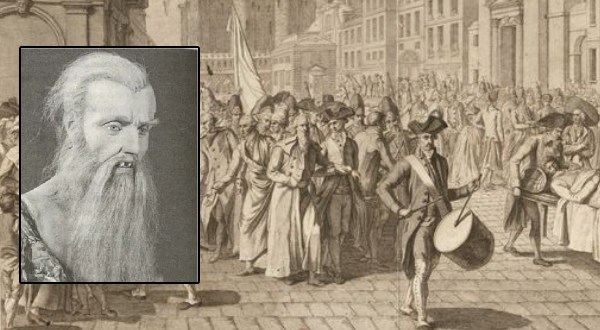Julius Caesar Patrolling the Streets! A Surprising Scene During the French Revolution
The Well of Loneliness by Radclyffe Hall stirred widespread controversy upon its release in 1928. The novel, which deals with lesbianism, was banned in several countries, including Britain. This article explores the legacy of the book, its impact on LGBTQ+ rights, and its continued relevance in the 21st century, even amidst ongoing debates over homosexuality.
A few months ago, while delivering a lecture in the United States, renowned author Salman Rushdie was attacked. His book The Satanic Verses was at the center of the controversy. The very subject matter of the book turned Rushdie into an "enemy" in many Muslim-majority countries, especially in Arab states. Even today, this timeless work remains banned in several countries, including Iran. While Western nations protested, did they always warmly embrace literature?
This question arises when discussing Radclyffe Hall's The Well of Loneliness. Published in 1928, the book stirred controversy across Europe, and in Britain, a special division bench was even set up for the case. Thousands filed lawsuits, and the book was eventually banned. But why?
The protagonist, Stephen Gordon, may sound like a man, but in reality, Stephen is a woman who exhibits masculine traits. From an early age, she is drawn to girls, prefers short hair, masculine clothing, and gym routines. Eventually, Stephen is ostracized and forced to flee to France, where she meets an ambulance driver, and a romantic relationship develops.
The novel explores lesbianism, which, while not entirely illegal in England at the time, was viewed with disdain by society. Radclyffe wanted to change this. She had already achieved success with her novel Adam’s Breed in 1926, and after that, she began writing The Well of Loneliness.
Despite her efforts, the book caused an uproar. Within days of its release, the novel was banned in Britain. Although the United States allowed it, distribution was limited. It wasn't until the 1960s that Britain lifted the ban, and the book was available publicly.
The controversy continued through the 1970s and 1980s. Critics claimed Radclyffe portrayed lesbianism from a misogynistic angle, and that she failed to show the joy that can come from same-sex relationships.
Ninety years after its publication, in 2019, a study revealed letters submitted to British judges at the time of the ban. These letters expressed both criticism and support for the book. It is clear that The Well of Loneliness resonated deeply with many, raising a voice for homosexual rights—a voice that reached far beyond Europe to places like Mexico.
Today, in the twenty-first century, where issues like homosexuality are still contested in places like Qatar, The Well of Loneliness continues to remain relevant, marking a crucial moment in the fight for LGBTQ+ rights.
References
References parsing not yet implemented.

Comments